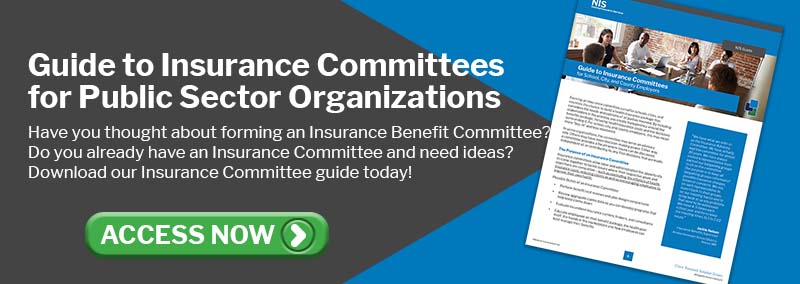4 minute read
On November 5, 2024, Donald Trump won the presidential election, signaling a new era of potential shifts in employment law policy. While the exact changes are yet to unfold, employers can gain insights by reflecting on the campaign policies on which he ran, as well as the initiatives from his previous term.
Potential Employment Law Initiatives
President-elect Trump will significantly influence employment law policy by appointing leaders to key federal agencies like the Department of Labor (DOL) and the Equal Employment Opportunity Commission (EEOC). Employers should watch for changes based on Trump's campaign positions and past administration actions. Key employment law changes are outlined below.
DOL
Employers can anticipate changes in DOL regulations, including the Fair Labor Standards Act (FLSA), by reviewing initiatives from Trump's first term and his campaign statements.
DOL Overtime Rule
The Biden administration's DOL introduced a new overtime rule, raising the salary threshold for white-collar exemptions under the FLSA. As of July 1, 2024, the salary requirement increased to $43,888 annually for most exemptions and $132,964 for highly compensated employees, with further increases set for January 1, 2025. The Trump administration may challenge this rule, but its implementation before Trump's potential return could complicate any reversal. Legal challenges are ongoing, and their outcomes could influence future actions.
Taxation of Overtime Wages and Earned Tips
Trump proposed exempting overtime and tipped wages from federal income tax to boost employee overtime and aid recruitment. While this could benefit service workers financially, the proposal must pass through the legislature and may face resistance due to potential federal tax revenue loss.
Minimum Wage
Minimum wage hikes have gained traction locally, but the federal rate remains $7.25 since 2009. Although Trump opposed increases in the past, his 2024 platform hints at possible support, though any rise may be modest.
Independent Contractors
The DOL sets standards for classifying workers as employees or independent contractors under the FLSA, impacting benefits, legal protections, and taxes. In 2021, a Trump-era rule aimed to simplify classifying workers as contractors, focusing on work control and profit opportunities. This rule was blocked by the Biden administration, which introduced a stricter rule in 2024. Legal challenges to this rule are ongoing, and a future administration might revert to the 2021 standards.
OSHA
The Occupational Safety and Health Administration (OSHA) is part of the DOL and oversees safety and health in most private industries. Under Biden, OSHA aimed to strengthen regulations, but these may be rolled back under Trump, who favors deregulation. Potential repeals include the Worker Walkaround Representative Rule, allowing third-party representatives during inspections, and proposed rules for heat injury prevention in certain industries.
Equal Employment Opportunity Commission
The EEOC enforces equal employment opportunity laws to combat workplace discrimination. Under the Biden administration, it emphasized accommodating pregnancy, preventing harassment, fostering inclusivity, and supporting vulnerable workers. With a Democratic majority until 2026, changes under the Trump administration remain uncertain, especially with a likely denied budget increase request for 2025.
Pay Data Collection
Private employers with 100+ employees and federal contractors with 50+ employees must annually submit demographic data to the EEOC via an EEO-1 report. The EEOC aims to reinstate a rule requiring pay data and hours worked, previously blocked by the Trump administration, which may block it again.
NLRB
The NLRB, an independent federal agency, enforces the NLRA, granting private-sector workers rights to organize and bargain collectively. While changes under a Trump NLRB are anticipated, they won't be immediate due to the current Democratic majority until 2026. Trump's first term favored employer-friendly policies, potentially reversing Biden-era decisions.
DEI
The Biden administration advanced DEI initiatives by promoting equity for historically underserved groups. This contrasts with Trump, who restricted diversity training. In 2023, Republican attorneys general opposed DEI measures, and the Trump administration may revoke Biden's executive order to reinstate his own.
Restrictive Covenants
The Democrat-led Federal Trade Commission (FTC) under Biden banned most noncompete clauses, but legal challenges blocked it. The FTC appealed in October 2024. Republicans oppose such regulations, so a Republican-led FTC would likely drop efforts to regulate noncompete clauses.
AI
Expect reduced federal AI regulations under Trump, with potential rollbacks of Biden-era policies, which set standards to reduce bias in employment decisions. Trump plans to repeal these restrictions, impacting AI's role in decision-making.
Immigration
Immigration reform was central to the Trump campaign and could impact employers by limiting the use of H-1B visas and ending programs like Deferred Action for Childhood Arrivals and Temporary Protected Status, potentially reducing the workforce.
Action Steps
Employers should comply with current employment laws from the Biden administration but prepare for potential changes under the Trump administration starting in 2025. Download the bulletin for more details.

